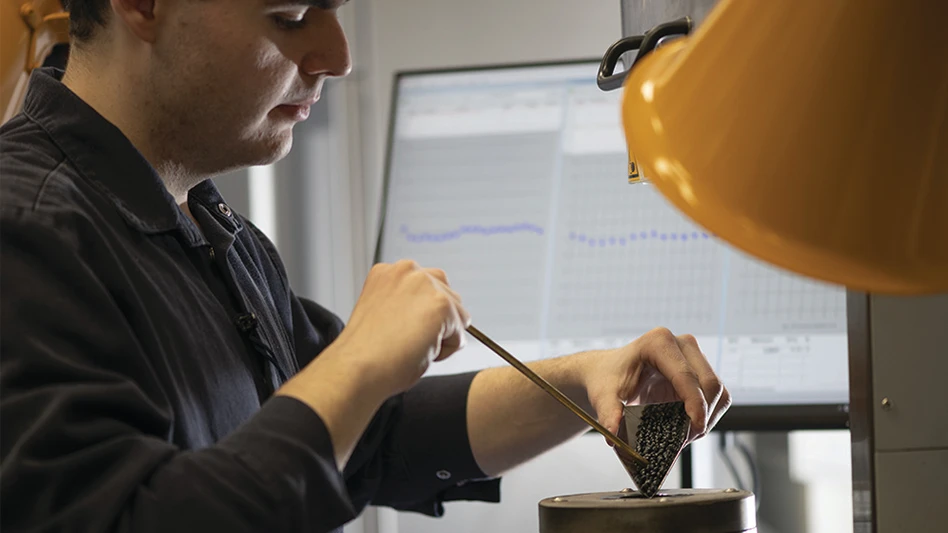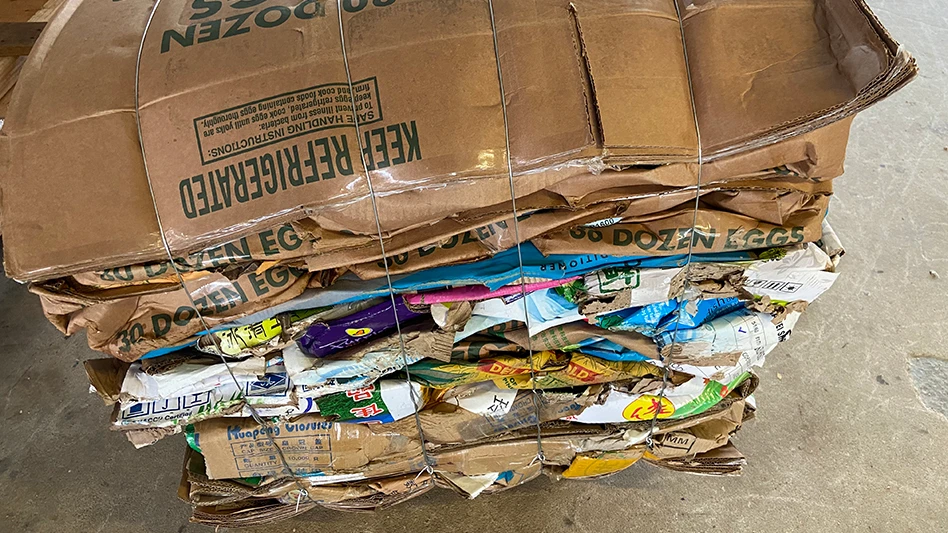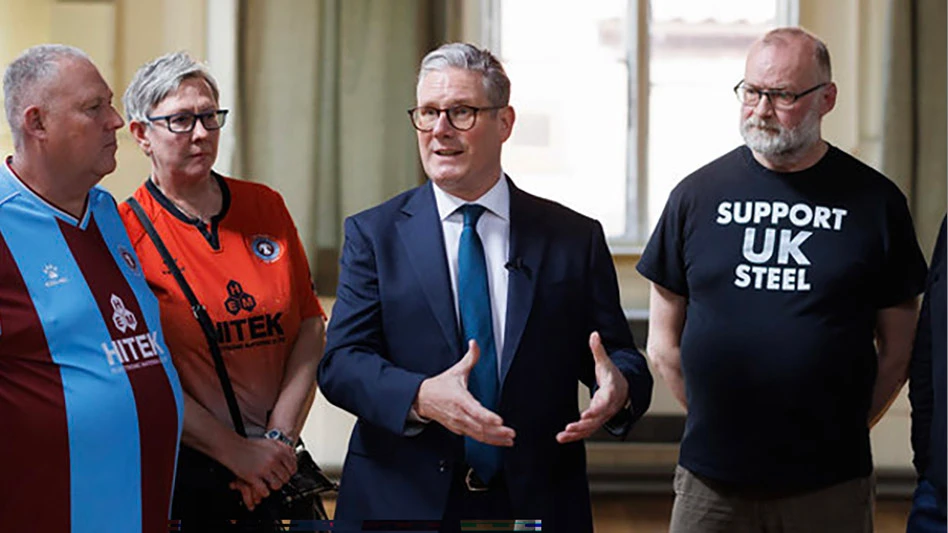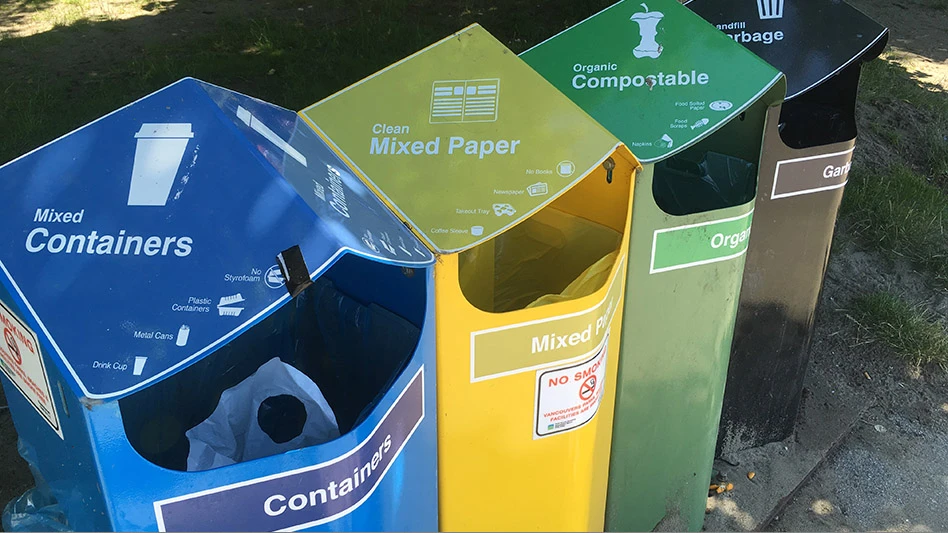Converting campuses
 Green beans are full of vitamins, minerals and micronutrients. Greenbean, on the other hand, is a reverse vending machine (RVM) with the goal of being full of recyclable bottles and cans.
Green beans are full of vitamins, minerals and micronutrients. Greenbean, on the other hand, is a reverse vending machine (RVM) with the goal of being full of recyclable bottles and cans.
Tomra Systems ARA, Shelton, Connecticut, a global provider of RVMs and sensor-based sorting equipment, has expanded its Greenbean bottle and can recycling initiative for U.S. colleges. Eight universities now have in their student centers or other high-traffic areas an UNO Promo model RVM, which collects bottles and cans and features a 10-inch touchscreen display, Internet connectivity and an upgraded user interface.
Students can now log on to http://react.tomra.com to track and manage their recycling points and rewards. Participating students can save points to earn rewards, such as reusable grocery bags or gift bags. In bottle deposit states, students can have the deposit cash transferred into a PayPal account.
“Greenbean … offers personalized incentives to drive engagement and can even facilitate on-campus contests to generate excitement about recycling and other sustainability topics,” says Ryan Drake-Lee, director of strategy and commercial software at Tomra.
Creative chronology
John Zubick Ltd. has been converting scrap metals and materials into useful commodities in London, Ontario, since 1946. For the past three years, it has been the company’s calendar series that has even more customers commending its work.
The family-owned company’s effort has now gained international recognition since being awarded a silver prize in the calendar category of the 2015 Summit Creative Awards.
The calendar features sculptures crafted from scrap metal at the yard of John Zubick Ltd. Featuring “scrap facts,” inspirational quotes and local events occurring throughout the year, the calendar’s images of scrap metal sculptures are the result of a project sponsored by the Zubicks for fine arts students at Fanshawe College in London, says Robert Adeland, president of Marketing Strategies & Solutions, the London-based advertising agency that created the calendar.
Adeland says the awards panel announced its winners from a pool of more than 5,000 entries from 23 countries. The awards strive to “recognize creative excellence in work by the world’s small design studios and agencies.”

Channeling communities
 Recycling is a global effort, and Sony Pictures Television recognizes that it will take everyone working together to make a difference. That’s why the Culver City, California-based company has launched a global environmental campaign across its channels in 177 countries, with many of the topics focusing on recycling and using recycled materials. Titled “Picture This,” Sony Pictures says the worldwide effort will use on-air campaigns and community events to cover topics and issues from across the globe.
Recycling is a global effort, and Sony Pictures Television recognizes that it will take everyone working together to make a difference. That’s why the Culver City, California-based company has launched a global environmental campaign across its channels in 177 countries, with many of the topics focusing on recycling and using recycled materials. Titled “Picture This,” Sony Pictures says the worldwide effort will use on-air campaigns and community events to cover topics and issues from across the globe.
The Picture This campaign focuses on several topics and regions, including:
Sponsored Content
Redefining Wire Processing Standards
In nonferrous wire and cable processing, SWEED balances proven performance with ongoing innovation. From standard systems to tailored solutions, we focus on efficient recovery and practical design. By continually refining our equipment and introducing new technology, we quietly shape the industry—one advancement at a time.
Sponsored Content
Redefining Wire Processing Standards
In nonferrous wire and cable processing, SWEED balances proven performance with ongoing innovation. From standard systems to tailored solutions, we focus on efficient recovery and practical design. By continually refining our equipment and introducing new technology, we quietly shape the industry—one advancement at a time.
Sponsored Content
Redefining Wire Processing Standards
In nonferrous wire and cable processing, SWEED balances proven performance with ongoing innovation. From standard systems to tailored solutions, we focus on efficient recovery and practical design. By continually refining our equipment and introducing new technology, we quietly shape the industry—one advancement at a time.
- Spain, where Sony Pictures is joining forces with Ecovidrio, a nonprofit organization that has been creating recycling programs for the last 17 years, to educate and inspire viewers on how to take personal action to help reduce the effects of climate change; and
- Russia, where Picture This will focus on recycling and the value of separating waste from recyclables.
Do you have a unique recycling-focused story? Please send a press release to Megan Workman at mworkman@gie.net.
Get curated news on YOUR industry.
Enter your email to receive our newsletters.

Explore the November 2015 Issue
Check out more from this issue and find your next story to read.
Latest from Recycling Today
- Acerinox names new North American Stainless CEO
- Greenwave closes 2024 books with red ink
- Steel Dynamics nets $217 million on record shipments
- Massive Chinese steelmaking rebound recorded in March
- LME looks into sustainable metal pricing
- OnePlanet Solar Recycling closes $7M seed financing round
- AMCS launches AMCS Platform Spring 2025 update
- Cyclic Materials to build rare earth recycling facility in Mesa, Arizona







